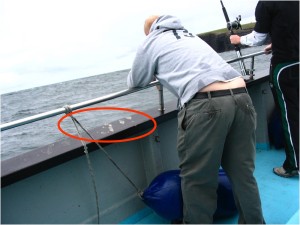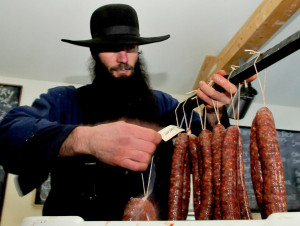Joe Lawlor of the Portland Press Herald reports the Maine Center for Disease Control and Prevention is proposing a rule change that would allow it to more easily withhold information on the locations of outbreaks of communicable diseases like measles, chicken pox and pertussis.
 A rule is the same as a regulation, would have legal force behind it and implements an agency’s interpretation of a law.
A rule is the same as a regulation, would have legal force behind it and implements an agency’s interpretation of a law.
Contacted Wednesday, CDC spokesman John Martins said the agency does not comment on pending rule changes.
The proposal comes a year after the Portland Press Herald filed a lawsuit in July 2015, when the Maine CDC denied the newspaper’s request for information about chicken pox outbreaks at three schools and a day-care facility during the 2014-15 school year. An outbreak is defined by the Maine CDC as a place where there are three or more cases of an infectious disease.
In a settlement agreement, the information was released to the Press Herald in October 2015, and the newspaper published the outbreak locations.
There were 84 chicken pox cases at Maine schools in 2014-15. Of those cases, 57 affected unvaccinated or undervaccinated children, according to CDC data.
In another case where public health advocates criticized the CDC for being unnecessarily secretive, the agency refused in 2014 to name the restaurant where a hepatitis A outbreak had occurred.
The Maine agency’s policy runs counter to recommendations by public health experts, who say that knowing where outbreaks occur is beneficial to the public health because some people – including infants, the elderly and those with compromised immune systems – are more susceptible to communicable diseases.
The CDC argued when denying the newspaper’s request last year that releasing the school names could jeopardize personal privacy because “indirect information” about the outbreaks could result in the public being able to identify people who had fallen ill.
But Sigmund Schutz, the Press Herald’s attorney, countered that the newspaper was not requesting personal information, and state law did not permit the CDC to deny the request.
Schutz said the new rule, if adopted, also would be in conflict with state open records laws, which do not give the agency latitude to deny requests based on unlikely scenarios that an individual could be identified.
Schutz said the newspaper will be lodging official comments objecting to the proposed rule. The public comment period ends Monday.









